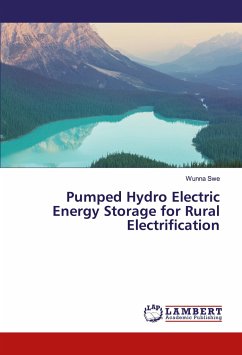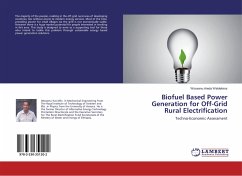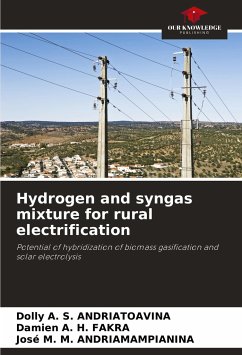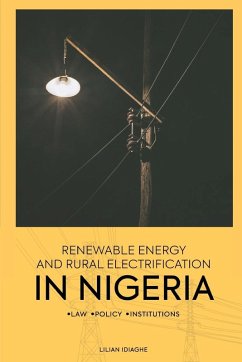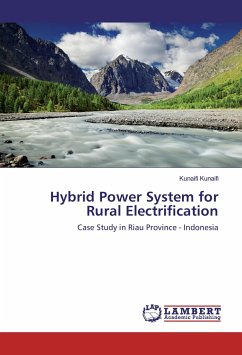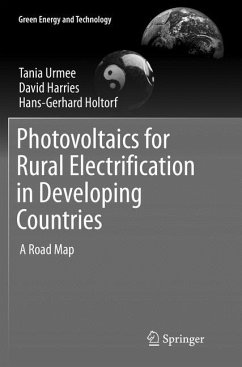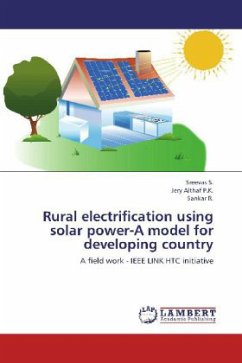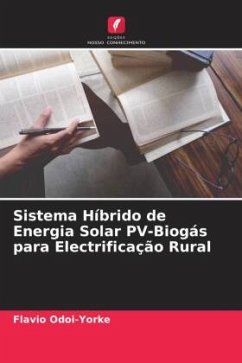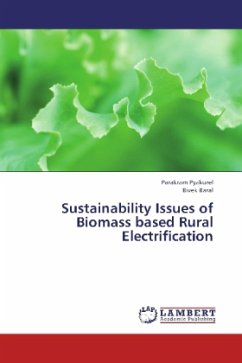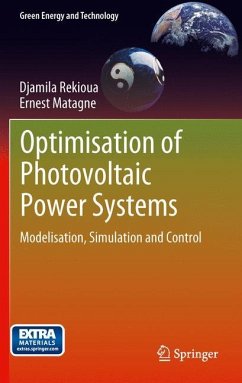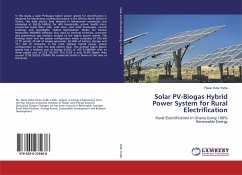
Solar PV-Biogas Hybrid Power System for Rural Electrification
Rural Electrification in Ghana Using 100% Renewable Energy
Versandkostenfrei!
Versandfertig in 6-10 Tagen
36,99 €
inkl. MwSt.

PAYBACK Punkte
18 °P sammeln!
In this study, a solar PV-biogas hybrid power system for electrification is designed for Mankramso community located in the Offinso-North district in Ghana. The daily electric load demand in Mankramso community was estimated at 262.05 kWh/d, for 400 households, school, health clinic, commercial loads (flour mills, cold store, and small businesses), church buildings and streetlights. Hybrid Optimization Model for Electric Renewable (HOMER) software was used to perform technical, economic and greenhouse gas emission analysis of the hybrid power system. The findings show that the system configura...
In this study, a solar PV-biogas hybrid power system for electrification is designed for Mankramso community located in the Offinso-North district in Ghana. The daily electric load demand in Mankramso community was estimated at 262.05 kWh/d, for 400 households, school, health clinic, commercial loads (flour mills, cold store, and small businesses), church buildings and streetlights. Hybrid Optimization Model for Electric Renewable (HOMER) software was used to perform technical, economic and greenhouse gas emission analysis of the hybrid power system. The findings show that the system configuration which comprises of 18.6 kW of PV panels, 45 kW of biogas generator, 62 kWh of battery storage and 15.7 kW of converter is the most optimal hybrid power system configuration to meet the daily electric load. This optimal hybrid power system had a levilized cost of energy (LCOE) of US$ 0.188/kWh with an initial capital cost of US$ 102,247. This LCOE is only 10.6% higher than current LCOE (US$ 0.17/kWh) for residential tariffs in Ghana at the time of this study.



